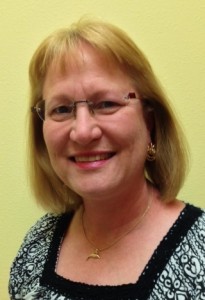by Annette Mardis
I started my writing career in the newspaper industry, not known for fostering healthful lifestyles.
Thankfully, we’ve long since left behind the era when ashtrays overflowed on desktops, smoke hung heavily in the stale air, and booze bottles shared drawer space with notepads and pens.
But newspaper reporting and writing remains a rigorous endeavor thanks to deadline stresses; too many meals eaten on the run or not at all; and assignments to cover, and uncover, the more sordid side of human nature.
Decades ago, when I was young, athletic and had energy to spare, my mind and body better tolerated such abuses. It was high adventure being jolted around on the back of a feed truck as it lurched among giraffes, zebras, and antelopes at Tampa’s Busch Gardens.
Or getting stepped on by frenzied bead seekers as marauding faux pirates hurled cheap trinkets into the crowd along the Gasparilla festival parade route.
Balancing out such fun were butt-numbing tasks like sitting through day-long school board meetings and criminal court proceedings. Back then, city recreation league softball offered a physical, social, and emotional outlet.
There’s something about the sensations of bat on ball and ball meeting glove that help soothe the psyche.
A promotion to management ended my days of dashing out to car wrecks, murder scenes, news conferences, and hurricane evacuation shelters.
And then came the summer of 1989, when the living corpse of the once-vibrant “Clearwater (Florida) Sun” was finally put out of its misery. The newspaper ceased daily publication, morphed into a twice-weekly tabloid, and laid off most of its staff, including me.
Fibromyalgia Raises Its Ugly Head
After only a week of worry, I landed an inside desk job with the larger paper across the bay in Tampa. The downside: a work schedule that left no room for twice weekly softball games and Sunday practices.
The downhill slide away from wellness began to pick up momentum, and much of it was my fault. I gained weight, lost muscle tone, and became the office equivalent of a couch potato.
Some days my entire body hurt so badly that I thanked my maker for a sit-down job. But that wasn’t much consolation on days my pounding head felt like it weighed two hundred pounds and my neck and shoulders were sore and stiff as a two-by-four.
I first heard the term “fibromyalgia” when a couple coworkers started complaining about their constant pain and fatigue. I murmured the expected “sorry to hear that” and “hope you feel better” and counted myself lucky I’d escaped such misery.
And then I was the one feeling sorry for myself. After other causes for my problems were considered and rejected, I was diagnosed with fibromyalgia sometime before 2008.
The condition is characterized by widespread aches, tenderness, and stiffness of muscles and associated connective tissue. People with fibromyalgia typically get fatigued quickly and also endure headaches and insomnia. My muscles get so knotted sometimes that I can feel the bulges beneath my skin.
Diagnosis is difficult because doctors usually arrive at it only after ruling out other likely sources of the persistent pain. Before the medical community accepted fibromyalgia as a legitimate malady, physicians unable to pinpoint cause and effect routinely told patients their discomfort was all in their head.
Fibromyalgia seems to afflict more women than men and also appears to run in families. My maternal grandmother, who died in December 2000, complained regularly about aching legs and hands. Blame fell on arthritis, old age, and Parkinson’s disease, but in hindsight I wonder if she also suffered from fibromyalgia.
My mother definitely does … suffer, that is. Her fibromyalgia symptoms are more severe than mine and have compromised her quality of life. I continually suggest she keep moving, but that’s difficult to do when it’s an effort sometimes just to put one foot in front of the other. Who wants to stroll under sun or stars when just getting out of bed feels like an insurmountable challenge some days.
Struggling with the Pain of Fibromyalgia
I fell into a funk, I’m not proud to say, and let fibromyalgia rule my life for a while. My job performance surely suffered, as did my personal relationships. When a friend kept pressing me to write a book, any book—which comes with the territory when you work with words—I had neither the oomph nor the ambition to do anything besides dismiss the idea.
Eventually, another wave of downsizing swept me out of the newsroom and into the pool of the unemployed for the second time in my newspaper career. I felt relieved, though rudderless.
Like so many other colleagues, past and present, who’d considered journalism a higher calling, I’d come to realize it was, at its core, just a business like nearly everything else. The ink that ran through my veins for nearly three decades had been bled dry.
Instead of figuring out what came next, I focused foremost for a while on being sick. Eventually, I mustered up enough ambition to volunteer at the neighborhood elementary school, and that brought me out of my own head. Before long, I’d accepted a poor-paying, part-time job helping supervise after-lunch recess at another school.
Five days a week, over the course of a three-hour shift, a coworker and I kept watch over the entire student body of more than 700 kids—not all at once, of course, although it seemed like it sometimes—as they played and alternately misbehaved.
At first, my out-of-shape body balked, and I limped home physically spent. I was fair game for whatever illness was spreading around campus, promptly caught pneumonia, and spent two weeks in bed.
Gradually, however, I built up my endurance. But then the newspaper business beckoned again, and a part-time gig for extra pocket change turned into a poor-paying, full-time job with an insane workload. I found myself right back on the hamster wheel, exhausting myself but going nowhere.
Facing Mortality Encourages Change
Unfortunately, it took the death of a close friend to shake up my life again and inspire me to write my first book, the woman’s fiction novella Getting Her Money’s Worth. Luckily, my husband has a better-paying job and I was able to quit mine before it ran me fully into the ground. I started volunteering one day a week at Clearwater Marine Aquarium, home of movie star dolphins Winter and Hope from the Dolphin Tale films. I wrote a middle-grade novel that’s still without a publisher, and then I hit upon an idea for a contemporary romance series based at an aquarium in the fictional west-central Florida beach town of Gulf Shore.
I still dabble in the news business as a freelance editor, but my renewed aspirations now revolve around building a second career as an author. Pain and fatigue remain an unwelcome companion, but I don’t let it dominate my life. Yes, I spend hours in front of a computer screen, but now I’m planted more comfortably on my couch or in my massage chair with the freedom to take breaks whenever and for how long I need them.
Tips for Writers Struggling with Fibromyalgia
So what’s the moral in all this? How can a writer, or anyone else, for that matter, weather a chronic health condition with motivation and creativity intact?
My eating habits aren’t as healthful as they should be, and I still don’t exercise nearly enough, so I’m not setting myself up as a shining example. But over the years I’ve found various ways to cope with and at least alleviate my symptoms, if only temporarily. Much of what follows is simple common sense advice that can benefit just about anyone.
- Attitude is everything. If you think you’re sick and useless, you will be. Positive thinking, especially for those conditioned to see the glass as half empty, is a lifestyle choice.
- Hot water is a blessing. A spa with massage jets is ideal, but even a long soak in the bathtub or a hot shower can help loosen knotted muscles and creaky joints.
- Hand-held massage devices are okay. Free back and neck rubs are better if you can talk somebody into giving them often. But a massage chair that does more than vibrate—that kneads and rolls along your body—is the best, at least in my estimation. In the long run, buying a chair is more economical than paying a professional massage therapist, although such treatments can bring relief and I’m not discounting them. Your chair, though, is available when you need it most—in the middle of the night when you ache too badly to sleep, when you wake up stiff and sore, and when a marathon writing session has taken its toll.
- Take pain medications when needed, but don’t pop pills if you can tough it out. Never exceed the recommended dosage. A doctor can prescribe medication that helps some fibromyalgia patients, but the side effects can be difficult. Drowsiness and a fogged brain aren’t conducive to productive writing sessions.
- Even if you don’t feel like it, force yourself to get up and get moving. Not everyone has the same pain threshold, of course, and overdoing it carries consequences. But mental fortitude is an acquired trait, much like physical stamina.
- Give yourself a break. It’s not necessary to chain yourself to a computer and be as prodigious as Nora Roberts to be a successful writer. But don’t let your pain be an excuse for procrastination.
- Get plenty of sleep, and rest your mind as well as your body.
- Make time for outside interests and outings with people whose company you enjoy.
- Use your talents to help others. Volunteering is a great way to feel good about yourself, make a difference in your community, meet interesting people, and open yourself up to new experiences. The more well rounded you are, the better writer you can become.
Have you struggled with fibromyalgia as a writer or other type of artist?
* * *
 Annette Mardis writes the kind of romance novels she loves to read: smart, sexy, and filled with “ah” moments.
Annette Mardis writes the kind of romance novels she loves to read: smart, sexy, and filled with “ah” moments.
Liquid Silver Books just released The Shore Thing, the first book in her Gulf Shore series. The sequel, Shore Feels Right, is set for publication on November 3, 2014.
Annette’s now busy writing Gulf Shore Book 3, tentatively titled Shore to Please.
For more information on Annette and her work, please see her website, or connect with her on Facebook, Twitter, and Pinterest.
 The Shore Thing: Danielle “Dani” Davidson vows to just say “no” to workplace romances. So why can’t she get Evan Sanders out of her mind?
The Shore Thing: Danielle “Dani” Davidson vows to just say “no” to workplace romances. So why can’t she get Evan Sanders out of her mind?
Evan is twice shy, too, after an alluring but self-absorbed colleague takes a bite out of his heart. Thought he’s dead set against dating anyone else he works with, he’s still intrigued by Dani’s intelligence, shyness, and low-key sexiness.
Their attraction smolders until an unfortunate encounter with a stingray sends Dani to the emergency room and Evan steps up to help her through her recovery.
But will Evan’s vindictive ex-lover, his career ambitions, and Dani’s inhibitions tear the young lovers apart? Available on Amazon.
 Shore Feels Right: Once a pariah among her coworkers, marine biologist Monica Sims has spent months reinventing herself.
Shore Feels Right: Once a pariah among her coworkers, marine biologist Monica Sims has spent months reinventing herself.
A history of failed relationships leaves her leery of romantic involvement, until she meets Cosby Williams, the new co-owner of Nauti-Toys watercraft rentals.
As things heat up between them, Gulf Shore Aquarium responds to the stranding of a group of pilot whales. When a billionaire bachelor lends his private plane to the rescue effort, Monica catches his eye—and an obsession is born.
How will she cope with the unwanted attention? And will her past sins come back to doom her newfound happiness with Cosby? Available on Amazon.


Excellent article. I have shared to both facebook & twitter. I live this everyday. I literally can’t remember now, the last pain free day I have had. This has been going on so long. I finally decided to stop wasting energy looking for a “cure” and instead used that energy, to have the best life possible in this body.
Wow, love that, Laura. “Have the best life possible in this body.” I feel for your pain and wish you the best in coping. Thanks for the share!
Thank you for this post! I’m a yet-to-be-published fiction writer with fibromyalgia/chronic fatigue syndrome and a few other fun health issues, and it’s so easy to become discouraged by all the go-getter, high-energy writers I read about (blogs, writers I follow on facebook, etc.). Sometimes I just want to give up. The worst part for me isn’t so much the pain as it is the brain fog and exhaustion, just the inability to be able to focus long enough to get a scene to make sense. I write because something in me compels me to tell the stories of the people who live in my head, but they have a hard time swimming through that darned brain fog.
Anyway, it helps to know there are others who have to manage their energy levels carefully and find ways to write through the difficult days. Thanks for the tips!
Hi, Stacy. I’m so glad this post was helpful to you. Writing is hard enough as it is—and we need our brains to be sharp, so I’m sure it’s frustrating to work around that brain fog. Annette was so kind to tell her story here. I hope some of her tips are helpful. Keep going no matter what—just get the words down and you can always edit later. Thanks for stopping by!
Thank you again, Colleen, for hosting me on your blog. I hope the post helps anyone else dealing with fibromyalgia or some other chronic illness.
Thank YOU, Annette. Really appreciate you sharing your experiences. Fibromyalgia presents unique challenges for writers (and other creatives) and it’s helpful to hear from someone who understands and is dealing with it on a daily basis.